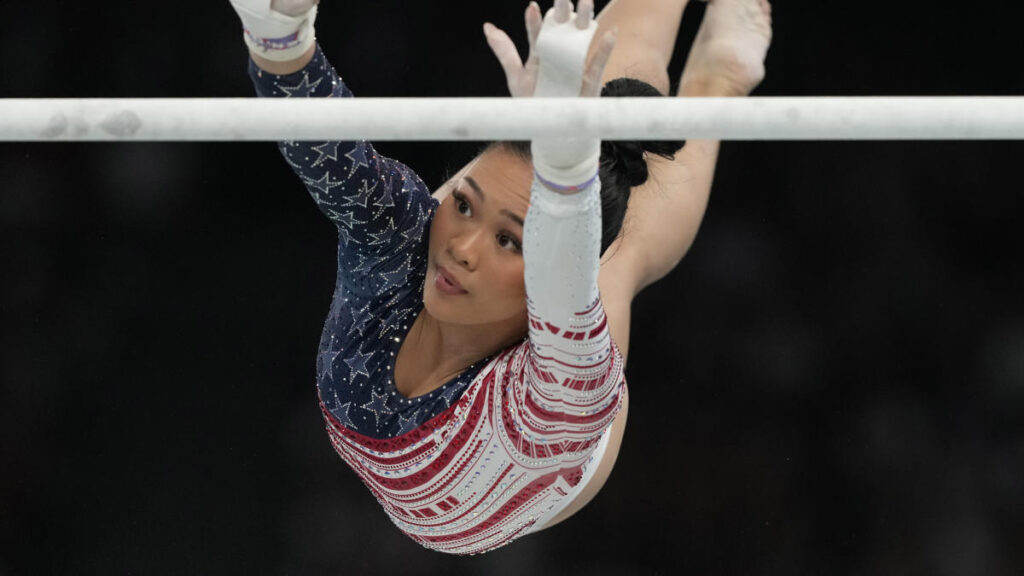The province’s evolution as one of Canada’s leading centres for sport and athlete development is a testament to what it has accomplished since the first BC Day 50 years ago.

Article content
British Columbia has come a long way since the first statutory holiday in British Columbia was observed 50 years ago on August 5, 1974. Its population has more than doubled from 2.4 million in 1974 to 5.1 million at the last census in 2022. Its growth rate relative to Canada’s national population is the first among provinces, as is its share of gross domestic product.
Announcement 2
Article content
Buoyed by its location at the gateway to the Pacific, Vancouver is arguably one of Canada’s most diverse provinces in terms of ethnicity, language and country of origin. That wasn’t the case in 1974, 12 years before the global marketing campaign that accompanied Expo 86, the World’s Fair that forever transformed Vancouver’s downtown and ultimately gave birth to what is now the city’s sports and entertainment district.
Construction had yet to begin on BC Place, the epicenter of the district. It would be nine years before the domed stadium opened to the public in 1983. That first BC Day came 36 years before BC Place would host the opening and closing ceremonies of the Vancouver 2010 Olympic and Paralympic Winter Games, another transformative event for the province and the country.
Announcement 3
Article content
The province has made tremendous progress, moving from an economy focused on forestry and natural resources in 1974 to one focused on high technology, tourism and all forms of transportation, including marine, in 2024.
But make no mistake, the province’s evolution as one of the country’s leading centres of sport and athlete development is one of the defining factors of what British Columbia has accomplished over the past 50 years.
In August 1974, the Vancouver Whitecaps, the North American Soccer League (NASL) version, was only three months old and playing in front of an average crowd of 11,000 at Empire Stadium. The Vancouver Canucks, meanwhile, were just weeks into training camp for their fifth season in the National Hockey League, but they shared the Pacific Coliseum with the Vancouver Blazers of the World Hockey Association (WHA) from 1973 to 1975.
Article content
Announcement 4
Article content
In a minor league baseball tradition that has made Nat Bailey Stadium one of the most intimate and iconic sports venues in North America and the current home of the Vancouver Canadians of the High-A Northwest League, it was the BC Lions who were the deans of professional sports in BC on that inaugural BC Day. Founded 20 years earlier in 1954, the Lions had won only one Grey Cup on the inaugural BC Day. Half a century later, the team has six Grey Cup titles to its name and is hosting the CFL championship for the 17th time this November.
The Vancouver Grizzlies and the NBA have been defunct since their move to Memphis in 2001, but other professional and semi-professional teams have emerged, including the Vancouver Bandits of the Canadian Elite Basketball League, Vancouver FC and Pacific FC of the Canadian Premier League, and the Victoria Harbour Cats of the West Coast League. As of 2021, the Abbotsford Canucks of the American Hockey League are also part of the hockey roster.
Advertisement 5
Article content
Vancouver in general, and BC Place in particular, have become Canada’s premier special events hub, with international soccer friendlies, the World Rugby Sevens and the upcoming 2025 Invictus Games and 2026 FIFA World Cup all in the spotlight. Add to that the XV Commonwealth Games in Victoria in 1994 and the multiple hosting duties held by Kamloops, Canada’s tournament capital, as well as a strong track record hosting the North American Indigenous Games, and British Columbia is firmly on the sports, heritage and cultural tourism map.
But it is precisely in Olympic sports that British Columbia has consistently outperformed its class. A year-round climate for summer athletes and great facilities for winter sports have certainly helped make British Columbia a training centre in recent years.
Announcement 6
Article content
The numbers speak for themselves as we approach the second week of the Paris 2024 Olympic Games: Canada’s team consists of 316 athletes, 140 of whom (44%) have a direct connection to British Columbia. Of these, 136 athletes (43%) are affiliated with the Canadian Sport Institute Pacific and have had access to programs, services and athlete training support at the institute’s campuses in Victoria, Vancouver and Whistler in the lead-up to the Games.
This is remarkable, considering that British Columbia is home to just 13% of Canada’s national population of 39 million. In Olympic sport, it is essentially more than three times Canada’s population per capita. Even more impressive is how BC athletes have translated their years of high-performance training into gold, silver and bronze medals for Canada. For example, ICS Pacific athletes won 14 of Canada’s 26 medals at the Beijing 2022 Olympic Winter Games (56%).
Announcement 7
Article content
British Columbia won 55 per cent of the Paralympic medals that year. At the last Summer Games in Tokyo three years ago, B.C. athletes won 10 of 24 medals (42 per cent) and four of seven gold medals (57 per cent). Watch for similar percentages on Aug. 11, when all is said and done at the 2024 Paris Olympics and next month’s Paralympics.
There is no doubt that a year-round training climate is a huge advantage. The facilities and amenities, both natural and man-made, provide an added boost. With more athletes training and living in British Columbia, the demand for more and better facilities will only increase.
But British Columbia’s emergence as a prolific training ground for Olympic athletes, both in the summer and winter, transcends climate, geography and access to everything from Elk Lake and the Pacific Ocean to the province’s mountain bike trails. It’s as much about human capital and expertise as anything else. Not only has the Canadian Sport Institute Pacific enlisted the services of more than 30 sport scientists in partnership with its national sport partners, but the province has become a beacon for leaders in sport medicine and science on the national and international fronts.
Announcement 8
Article content
This is exemplified by SportMedBC, a non-profit professional society founded in 1982 by people like Dr. Doug Clement and Dr. Jack Taunton. With Dr. Clement and Dr. Taunton in the BC Sports Hall of Fame alongside Dr. Alex McKechnie, Dr. David Cox, Dr. Brian Day, Dr. Bob McCormack and others, it’s no wonder there are more sport scientists, sports medicine physicians, physiotherapists and athletic trainers per capita in B.C. than anywhere else in Canada.
This is putting in place an infrastructure that should allow British Columbia to continue to grow as a catalyst for athlete development and sport. And that is something to celebrate on the 50th anniversary of BC Day.
Tom Mayenknecht, sports commentator and marketing communications manager, is a
Director of Emblematica Brand Builders. He is the Chairman of the BC Sports Hall of Fame and
host of The Sport Market on Sportsnet 650.
Article content

